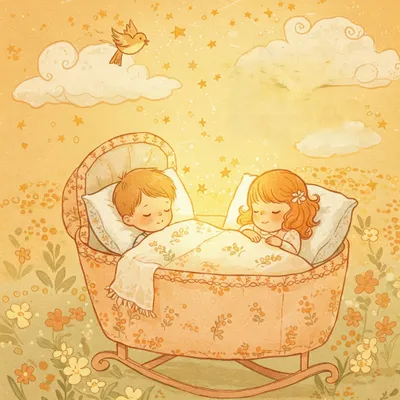Golden Slumbers Kiss Your Eyes

Lyrics
Smiles awake you when you rise;
Sleep, pretty wantons, do not cry,
And I will sing a lullaby:
Rock them, rock them, lullaby.
Care is heavy, therefore sleep you;
You are care, and care must keep you;
Sleep, pretty wantons, do not cry,
And I will sing a lullaby:
Rock them, rock them, lullaby.
History and Meaning
"Golden Slumbers" truly captures the essence of a soothing lullaby, one you might find yourself humming at bedtime. Its beautiful words have a rich history, dating back to Thomas Dekker's play Patient Grissel from 1603. Imagine parents nearly four hundred years ago murmuring these same gentle phrases! The imagery of "golden slumbers" kissing a child's eyes is wonderfully evocative, painting sleep as something precious and peaceful descending upon them – a perfect sentiment for easing a little one into rest.
The core message is one of deep comfort and reassurance. It offers a tender promise: sleep now ("do not cry"), and joy awaits ("Smiles awake you when you rise"). This speaks directly to the universal parental wish for their child to sleep soundly and wake happily. While a less common second verse acknowledges that life holds "care," it reinforces the idea of sleep as a necessary, protective refuge, emphasizing the preciousness of the child being cared for. It beautifully encapsulates the secure world a parent hopes to create at bedtime.
The lullaby's enduring charm lies in this blend of poetic language and heartfelt sentiment. Its cultural resonance was amplified when The Beatles incorporated its opening lines into their "Golden Slumbers/Carry That Weight" medley on the iconic Abbey Road album. This brought the centuries-old verse to a modern audience, proving the timeless appeal of its comforting words. Sharing "Golden Slumbers" connects us not only to our child in the quiet moments of bedtime but also to a long tradition of parental tenderness.